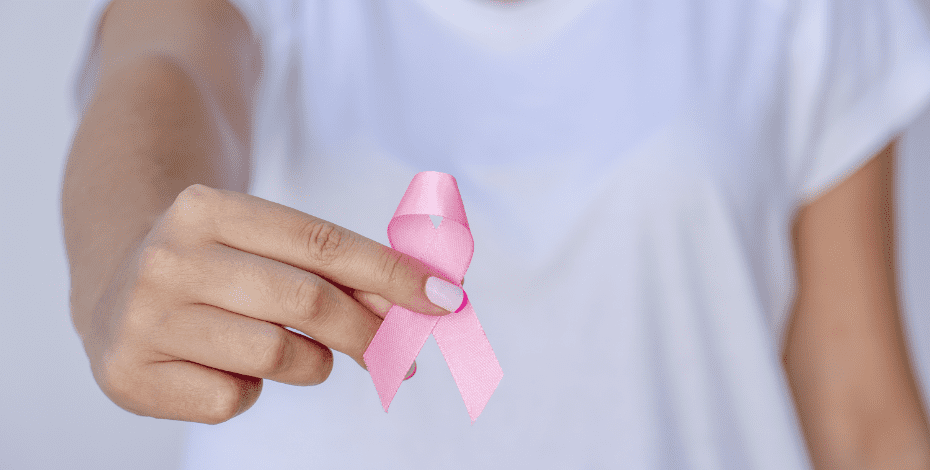
Physiotherapy for breast cancer sequelae

Professors An De Groef and Nele Devoogdt of Belgium have written an Invited Topical Review on physiotherapy management of breast cancer treatment-related sequelae. Invited Topical Reviews are a hugely popular feature in the Journal of Physiotherapy because they summarise the causes, assessment, diagnosis, prognosis and management of the condition.
Your Invited Topical Review recognises a diverse array of sequelae arising from breast cancer. What particular conditions does it focus on?
The review focuses on the most prevalent and persistent sequelae, namely pain, cancer-related fatigue and upper limb dysfunctions.
However, it is important to recognise that different mechanisms may underlie these conditions.
The review first discusses the various medical treatments for breast cancers.
Why is it important for physiotherapists to know about these?
It is common for medical treatments to employ distinct mechanisms of action in treating cancer and its side effects.
As outlined in the paper and reiterated in the preceding discussion, the three sequelae we have explored remain rather broad in scope.
For instance, it is imperative to recognise that managing hand pain due to chemotherapy-induced neuropathies necessitates different therapeutic approaches than addressing similar discomfort produced by hormone therapy, for example.
Similarly, upper limb dysfunctions arising from post-surgical motor behaviour alterations require a distinct strategy compared to those caused by scarring and fibrosis following radiotherapy.
To address these sequelae effectively, it is essential to comprehend the complexities of various medical interventions and their contributions to these challenges.
Importantly, adopting a broader biopsychosocial perspective is vital, as research indicates that factors beyond medical treatments alone influence these sequelae.
For instance, in cases of cancer-related fatigue, variables such as anxiety, depression and social support play significant roles in exacerbating or alleviating this symptom.
What interventions were found to be effective for pain?
We explored various interventions for managing pain in breast cancer patients.
Pain education showed mixed results, with no significant effects on pain intensity.
Manual therapy, such as passive mobilisations and myofascial therapy, demonstrated minor benefits for long-term locoregional pain but lacked superiority over alternative interventions.
Specific exercise therapy, particularly mobilisation and stretching exercises, showed promise in reducing pain intensity, especially when initiated early after surgery.
The impact of general exercise on pain management remains inconclusive due to limited research.
Mind-body exercises like Pilates and Tai Chi may offer benefits for reducing pain intensity, although evidence is mixed.
What about upper limb dysfunction?
Interventions for upper limb (UL) dysfunctions in breast cancer patients are still underexplored.
Pain education and manual therapy did not have a significant effect on UL function.
Specific exercise therapy, particularly mobilisation and stretching exercises, demonstrated potential for improving UL function and mobility, especially when supervised and initiated early after surgery.
The impact of general exercise on upper limb function remains unclear due to limited research.
Mind-body exercises like Pilates and Tai Chi showed promising results for improving UL function, although evidence is conflicting.
What interventions are effective for cancer-related fatigue?
Education during chemotherapy showed short-term benefits, particularly with online formats.
Supervised exercise programs, including aerobic exercises and yoga, showed moderate overall effects on cancer-related fatigue, with longer durations and higher frequencies yielding better results.
Home-based walking programs within multifaceted treatments also showed moderate effectiveness.
Mind-body exercises like Tai Chi and yoga exhibited moderate effectiveness, especially with longer sessions.
What are some priorities for future research in this area?
Future research in physiotherapy for breast cancer survivors should prioritise two key areas.
Firstly, understanding the mechanisms behind common treatment-related sequelae like chemotherapy-induced peripheral neuropathies and aromatase inhibitor-associated musculoskeletal symptoms is crucial, particularly focusing on persistent issues such as widespread pain and upper limb dysfunctions.
In this, biopsychosocial mechanisms should be considered.
For pain in particular, peripheral nociceptive and neuropathic input, along with nociplastic mechanisms, should be scrutinised to enhance the efficacy of physiotherapy interventions, especially in long-term survivorship.
Secondly, research should delve into the mechanisms of action underlying interventions, like manual therapies and specific exercise regimens, to optimise outcomes.
Investigating the FITT principles for exercise therapies and refining the design of general therapies are essential.
Moreover, educating patients about breast cancer-related sequelae alongside exploring characteristics of educational interventions is vital.
Holistic approaches emphasising general exercises and mind-body practices are beneficial, with lifestyle factors like physical activity, sleep and nutrition being crucial.
Personalised approaches, including risk profiling and proactive surveillance models, integrated with multidisciplinary strategies, could enhance intervention effectiveness.
Utilising technology-based interventions such as telerehabilitation and wearable devices can improve accessibility and adherence to treatments, shaping the future of physiotherapy for breast cancer survivors.
Course of Interest:
Physiotherapy for breast cancer sequelae
>>An De Groef, a physiotherapist, is an assistant professor at both KU Leuven and Antwerp University in Belgium. Her research specialises in cancer-related comorbidities, with a particular emphasis on pain management and upper limb dysfunctions.
>>Nele Devoogdt is physiotherapist and associate professor at KU Leuven, department of rehabilitation sciences. Her research focuses on cancer-related comorbidities, with a particular interest in lymphoedema. Besides that, she coordinates the centre for lymphoedema patients in the University Hospitals Leuven.
© Copyright 2025 by Australian Physiotherapy Association. All rights reserved.





